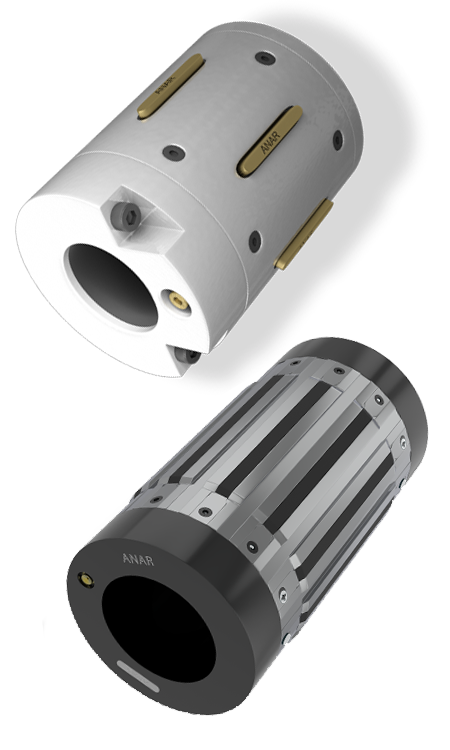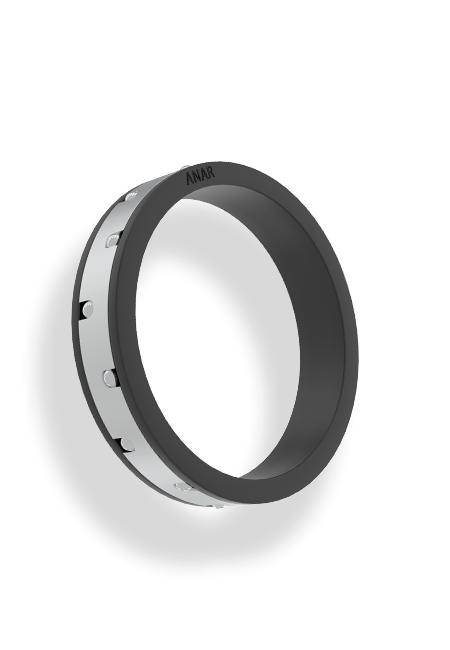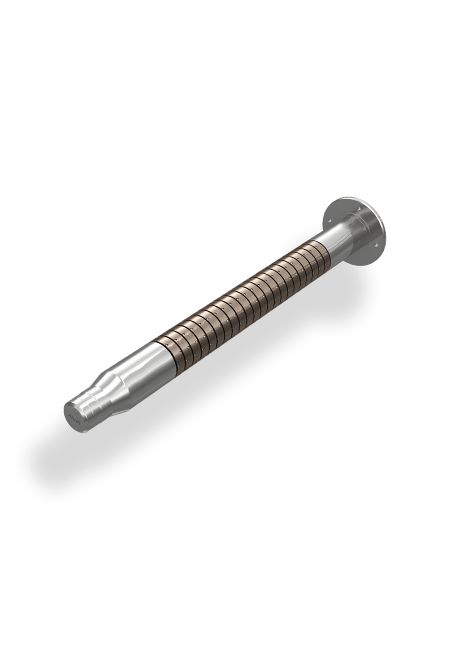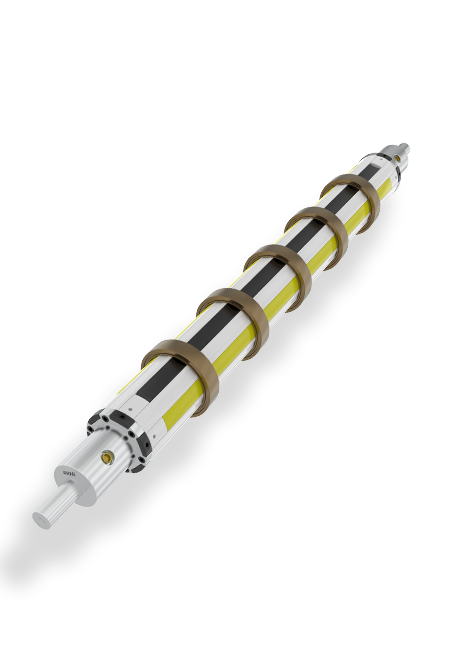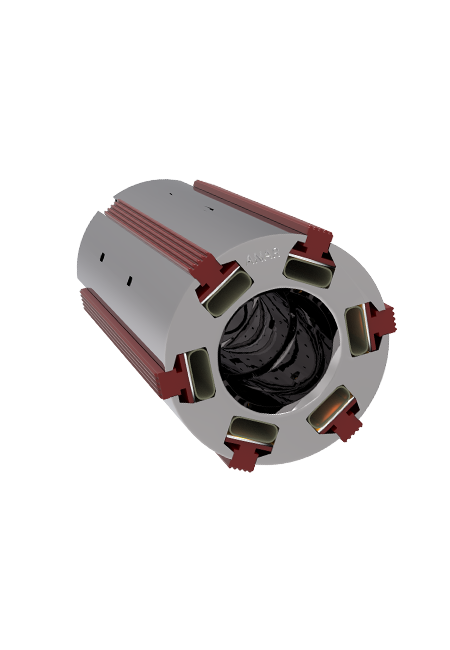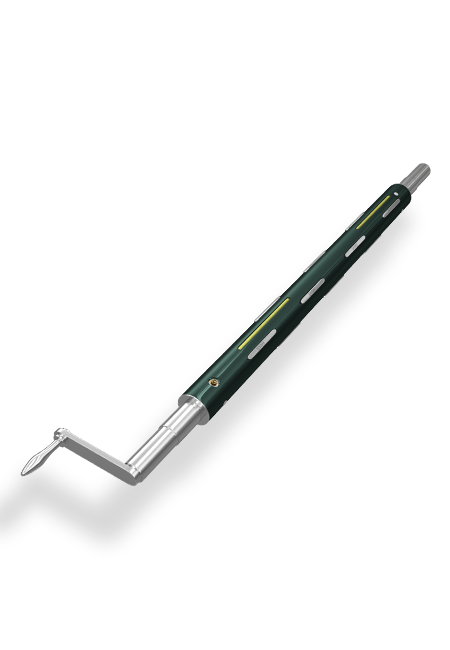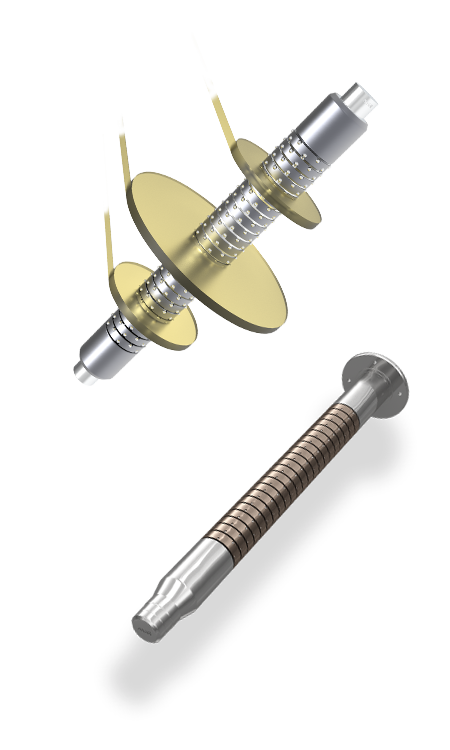
Differential Shaft
Differences in product thickness and winding stress frequently occur when rewinding aluminum foils, laminates, plastics, and other products. After just a few turnings, the center of some small rolls may be tight, while others are looser, making the top quality of the completion item inappropriate. A Differential Rewind Differential Shaft vanquishes these worries by keeping the right weight on all rolls throughout the winding activity, ensuring the web item doesn't droop, stretch, or tear, and the rolls are consistently wound. To play out this element, the middle shaft is needed to spin at a more prominent rate than the Differential Friction Rings. Every one of the cores is required to slide constantly. However, some will undoubtedly slip more than others to keep the same stress. Control of the slippage and the internet stress is achieved by differing the air supply to the center shaft, so a consistent air supply must be offered, preferably between 20 and 60 psi (1-- 4 Bar). As the roll dimension rises throughout the winding process, the rate of the Differential Shaft needs to be reduced to preserve the same over speed rate.
Friction Shaft
Re-Differential Shafts give the best answer for numerous free moves that rewind inside a similar post because each needs a fitting web strain. They can be used for a greater variety of applications than friction rings with balls.
Differential Shafts are ideal for quite a long time to move that breeze inside a similar post because each needs a suitable web pressure.
When rewinding multiple rolls made after an aluminum process on a film paper, or any other type of material, it is customary to see significant differences in thickness and, as a result, variations in the tension of the web.
To resolve this problem, the Differential Shafts allow the rolls to be locked onto one or more friction rings in the middle of the registration, ensuring an exact rewinding and an even web tension for every roll.
Friction rings with rollers constructed of aluminum that has been anodized black or steel based on the size come with more expansive support surface rollers to ensure maximum performance under any operating condition. An internal ball bearing made of spheres enhances the ring's strength even when made of aluminum. This makes the sliding process more fluid. Contact rings, with widths beginning at 19,65 mm, might be equipped with preloaded situating gadgets to work on the strength of the centers of the reels before the holding rollers engage the core.
FRICTION SHAFT
Friction rings with rollers constructed of aluminum that has been anodized black or steel based on the size come with more expansive support surface rollers to ensure maximum performance under any operating condition. An internal ball bearing made of spheres enhances the ring's strength even when made of aluminum. This makes the sliding process more fluid. Contact rings, with widths beginning at 19,65 mm, might be equipped with preloaded situating gadgets to work on the strength of the centers of the reels before the holding rollers engage the core.
Larger support surface The gripping rollers offer a more comprehensive supporting character, which increases the stability for the roll core that is perfectly parallel towards the shaft central.
Damage to the core of the reel Expanding balls typically cause a groove to the bodies of the revolution during unloading and expanding rollers ensure the easy and safe removal of rolls without causing damage to cores. Since cores won't be damaged, they can be used again.
Utilizes both plastic and carton cores Due to the broader support surface and the friction rings that have expanding rolls guarantee a good grip on both cartons and plastic substances. This will prevent any form of core slippage.



